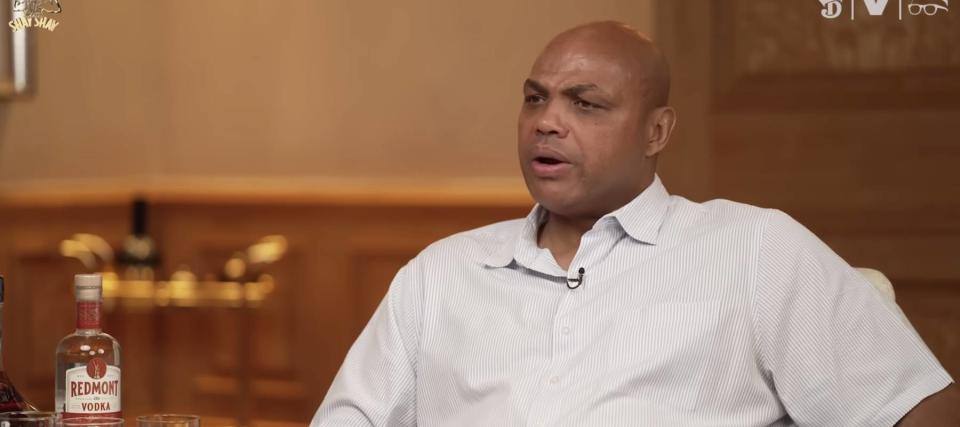Charles Barkley reveals why nearly 80% of pro athletes go broke after retirement — how to avoid their mistakes

Charles Barkley might have earned the moniker “Bread Truck” for raking in millions of dollars — but he wasn’t always a pro when it came to managing his NBA earnings.
“I first was an idiot when I got my money,” Barkley said on the Club Shay Shay podcast hosted by former NFL tight end Shannon Sharpe.
Don't miss
Cost-of-living in America is still out of control — use these 3 'real assets' to protect your wealth today, no matter what the US Fed does or says
Car insurance rates have spiked in the US to a stunning $2,150/year — but you can be smarter than that. Here's how you can save yourself as much as $820 annually in minutes (it's 100% free)
These 5 magic money moves will boost you up America's net worth ladder in 2024 — and you can complete each step within minutes. Here's how
Barkley recalled he had three or four cars at the time, but NBA icon and mentor Julius “Dr. J” Irving cautioned him against spending extravagantly, questioning how many of those cars he could drive at the same time.
“[Dr. J] said, ‘Chuck, this money got to last you for the rest of your life,’” Barkley recounted. “‘Everybody knows who you are. You pull up in a Kia, they know that’s Charles Barkley. You pull up in a Mercedes Benz or a Rolls Royce, that’s Charles Barkley.”
Experts say majority of professional athletes go broke
A stunning 78% of professional athletes go broke after just three years of retirement, Craig Brown, an NKSFB Sports Business Division partner, told FOX Business' "Mornings with Maria" in 2022.
Barkley references this statistic on the Club Shay Shay podcast, emphasizing the importance of having money left over as you age.
“I don’t mind a little ice, but too much ice,” Barkley said, calling out younger athletes splurging on Dior shoes and Louis Vuitton shirts. “They do know that money ain’t gonna last forever, right?"
Sharpe agreed. “I don’t want to be poor — I’ve been poor,” he said. “I know what it’s like to eat raccoon, possum, sardines, Vienna sausages, pig ears, pig tails, pig feet — I don’t wanna eat that no more, Chuck, unless I want to.”
But Sharpe also noted that many athletes who come from low-income backgrounds see their earnings as the first opportunity to show that they’ve “made it.” The underlying issue is that many of them aren’t prepared to receive a large sum of money over a relatively short period of time and aren’t prepared to manage it wisely.
Aside from spending lavishly on themselves, Barkley added, plenty of professional athletes are urged to blow their earnings on friends and family members. He said he learned “a tough and painful” lesson when he started telling people no for the first time.
Read more: Thanks to Jeff Bezos, you can now use $100 to cash in on prime real estate — without the headache of being a landlord. Here's how
How to avoid these wealth-killing mistakes (even if you don’t play ball)
Experts say it’s incredibly important to start investing early to really capitalize on the power of compound interest.
Even if you’re not a pro athlete, you could be saving up for once you’ve exited the workforce and entered your golden years, starting a new business venture or making a major purchase (like your first home).
It can also be helpful to speak to a financial adviser who’s trained in wealth management and can get you on track to meeting your financial goals.
Irving advised Barkley to think about his future self instead of trying to impress others.
“‘The problem is — it’s not the fact that you can’t afford that car — it’s the fact that the $300,000 you spent on that Bentley, if you bought a car for $70,000, $80,000, you would have had $200,000 more in the bank and it would have been growing and growing,’” Barkley remembers Irving telling him.
“‘And in one year, three years, five years, twenty years, that $200,000 is going to be worth a lot more.’”
What to read next
Car insurance premiums in America are through the roof — and only getting worse. But 5 minutes could have you paying as little as $29/month
'It's not taxed at all': Warren Buffett shares the 'best investment' you can make when battling rising costs — take advantage today
‘Baby boomers bust': Robert Kiyosaki warns that older Americans will get crushed in the 'biggest bubble in history' — 3 shockproof assets for instant insurance now
This article provides information only and should not be construed as advice. It is provided without warranty of any kind.

 Yahoo Finance
Yahoo Finance